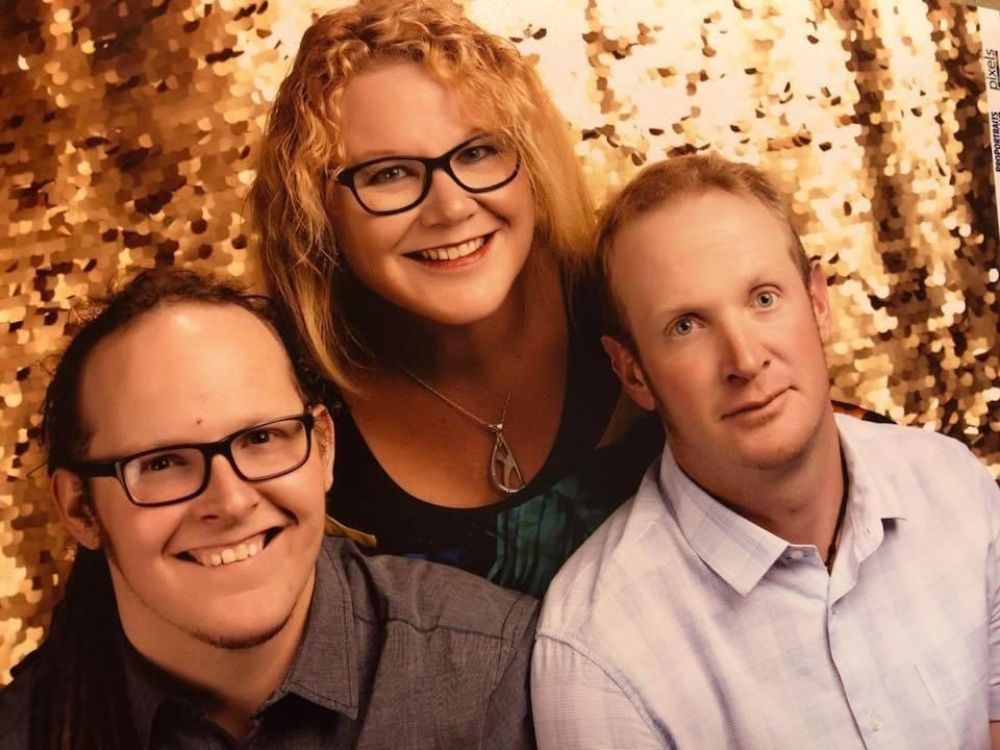Mandy Whitechurch’s son Timmy was always clumsy, but when he turned 15, his clumsiness got worse and he developed slurred speech and a backward gait while walking.
“We began the search for what was wrong,” says Whitechurch. An IQ test diagnosed Timmy as borderline intellectually disabled, then two years of tests, scans, hospital admissions and lumbar punctures eventually led them to neurologist Professor Elsdon Storey. Through an eye-hand coordination test and a skin biopsy, Storer diagnosed Niemann-Pick Type C disease (NPC), an incurable and rare progressive genetic disorder, estimated to affect one in every 150,000 individuals worldwide.
Timmy was subsequently referred to neuropsychiatrist Professor Mark Walterfang, a world expert in Niemann-Pick Type C disease, who suggested she also bring in her elder son Matthew, for testing.
Matthew had been diagnosed with ADHD as a child. “We’d put his learning difficulties, inability to hold down a job and manage money plus his vertical supranuclear gaze palsy (SNGP) – an inability to move his gaze without moving his head – to the ADHD,” Whitechurch says.
Following Matthew’s diagnosis, the only significant relief doctors could provide was compassionate access to the FDA-approved drug, miglustat – which improves or stabilises several clinically relevant markers of NPC but doesn’t cure or reverse the symptoms. “The doctors handed me a 10-year life expectancy for both my sons and told me to go home and make memories, which left me feeling distraught,” says Whitechurch. “I decided I wasn’t going to take the diagnosis sitting down. I wanted to fight for my boys’ lives, to give them extra time with me, to give them hope.”
In 2009, she founded the Australian NPC Disease Foundation, to support families in Australia and New Zealand affected by NPC by obtaining grants to buy equipment, home modifications, covering costs related to in-patient hospital visits, and sharing experiences and advice. Through private and public fundraising efforts, the foundation also supports the NPC research of Dr Ya Hui Hung, at the Florey Institute of Neuroscience and Mental Health in Melbourne.
She’s also an active Committee Member of the International Niemann-Pick Disease Alliance (INPDA), which established international connections with experts in the field and brought treatment trials to Melbourne hospitals. The first successful trial drug was brought in 2016 – a spinal infusion drug called VTS-270. “This treatment had showed promising results in other countries with improvement in cognition, swallowing and movement symptoms,” says Whitechurch.
Timmy, 28 at the time, was granted compassionate use and had the first adult dose of the drug, via a surgically inserted port. Sadly, he had an adverse side effect from the drug and lost most of his hearing, which left him with 24/7 tinnitus on top of his progressing NPC symptoms. Currently, Timmy lives with a hearing aid, and came off the drug miglustat, in 2016, after developing long-term pneumonia and bowel bleeding. “Timmy no longer meets criteria for future drug trials due to his acute symptoms,” says Whitechurch. “He only receives treatment medication for depression and is on antipsychotic medication which helps him with his agitation and frustration at not being able to do what he wants.”
Now 32, Timmy relies on a wheelchair and 24/7 carers.
“He’s PEG fed [through the skin], and unable to play his beloved guitar much due to dystonia in his hands and fingers,” says Whitechurch. “He suffers from dementia, struggles to talk and has never been able to work or have a girlfriend although he yearns for one. But he smiles, and that’s what keeps us going.”
Matthew, 34, is now in the dementia stage of the disease. “He constantly loses things which makes him frustrated and angry, he can’t play football any more, he doesn’t have a social life, and he’s fearful of taking part in any of the drug trials after seeing his brother’s decline and knowing he has the same disease,” says Whitechurch. “Matthew’s motto is, ‘Live life now whilst I can’.”
Even though it’s been 14 years since the diagnoses, Whitechurch still finds it difficult to accept that she’ll “never attend any of my children’s weddings or become a grandmother.” But seeing what the foundation has been able to do for other families inspires her and gives her hope.
“We now have 30 patients that have found us for support,” she says. One is Sebastian Chamberlain from New Zealand, who through contact with the foundation was able to participate in a trial drug and meet others living with NPC. “When Sebastian turned 18, New Zealand transferred the trial to his local hospital and he continues to eat normal food which is a huge part of his life,” says Whitechurch.
With NPC, early diagnosis is crucial, says Whitechurch. “The sooner you have access to drugs like miglustat, the more chance patients have of slowing down the disease’s progression, which in turn, gives a longer life expectancy. Our hope is to one day find a cure, so people diagnosed with NPC can live a full life.”







